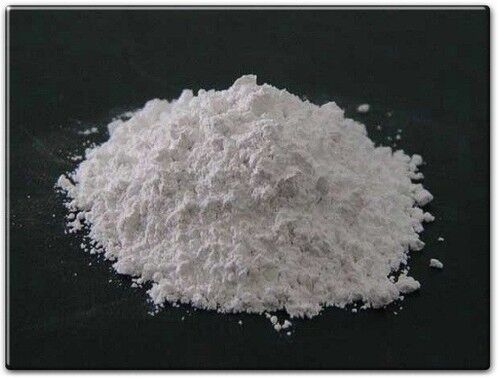Lime Stone Powder
Limestone Powder, which is rich in calcium carbonate (CaCO3), has several agricultural applications due to its ability to improve soil quality and provide essential nutrients to plants.
Here are some common uses and applications of limestone powder in agriculture:
Soil pH Adjustment: Limestone powder is often used to raise the pH of acidic soils. When applied to acidic soils, it reacts with soil acidity, neutralizing it and bringing the pH closer to neutral (pH 7). This process is known as liming and helps create a more favorable environment for plant growth.
Nutrient Availability: Adequate soil pH is crucial for nutrient availability to plants. Limestone powder can enhance the availability of essential nutrients like phosphorus, potassium, and micronutrients by reducing the toxic effects of soil acidity on plant roots.
Magnesium Supply: Some types of limestone contain magnesium in addition to calcium. Magnesium is an essential nutrient for plant growth, and using magnesium-rich limestone can help supplement this nutrient in soils t
hat are deficient in magnesium.
Improved Soil Structure: Limestone can improve soil structure by promoting the aggregation of soil particles. This can lead to better water infiltration, reduced soil erosion, and improved root penetration, ultimately benefiting plant growth.
Enhanced Fertilizer Efficiency: Limestone can help improve the efficiency of fertilizers by reducing nutrient losses through leaching. It can also enhance the stability of certain fertilizers.
Soil Conditioner: Limestone powder can be used as a soil conditioner to improve the overall physical and chemical properties of the soil, making it more suitable for cultivation.
Disease Control: Limestone is sometimes used to reduce the incidence of certain soil-borne diseases by creating conditions that are less favorable for disease-causing organisms.
Animal Feed: In agriculture, limestone powder is sometimes used as a supplement in animal feed to provide calcium, which is essential for bone development and overall animal health.
Composting: Limestone can be added to compost piles to help balance the pH and provide calcium and magnesium for microbial activity, which speeds up the decomposition process.
Hydroponics: In hydroponic systems, where plants are grown in nutrient solutions without soil, calcium-rich limestone powder may be used to adjust the pH of the nutrient solution and provide calcium to the plants.
It’s important to note that the application rate and timing of limestone powder can vary depending on the specific soil conditions and crop requirements. Soil testing and consultation with agricultural experts can help determine the appropriate use of limestone powder for specific agricultural applications.
Limestone Powder, rich in calcium carbonate (CaCO3), has various applications outside of agriculture. Its calcium-rich composition and unique properties make it valuable in several industries and for various purposes. Here are some common uses and applications of limestone powder in non-agricultural contexts:
Construction Industry:
- Concrete Production: Limestone powder is used as a filler material in the production of concrete. It improves the workability, durability, and strength of concrete structures.
- Masonry Mortars: It is used in the preparation of masonry mortars for building construction.
- Asphalt Mixtures: Limestone powder can be added to asphalt mixtures to enhance their performance and durability.
Manufacturing:
- Manufacture of Lime: Limestone is a primary source of lime (calcium oxide), which is used in various industrial processes, including metallurgy, paper production, and water treatment.
- Glass Production: Limestone is used in the manufacturing of glass as a fluxing agent, helping to lower the melting point of silica.
Environmental Applications:
- Water Treatment: Limestone powder is often used in water treatment plants to adjust pH levels and remove impurities like heavy metals and organic matter from water.
- Flue Gas Desulfurization (FGD): In power plants, limestone is used in FGD systems to remove sulfur dioxide emissions from flue gases.
Iron and Steel Industry:
Fluxing Agent: Limestone acts as a flux during the smelting process in the iron and steel industry, helping to remove impurities and improve the quality of steel.
Chemical Industry:
Neutralization: Limestone powder is used to neutralize acidic wastewater in industrial processes, helping to meet environmental regulations.
Animal Feed:
Similar to its use in agriculture, limestone powder can be used as a calcium supplement in animal feed to improve the health and productivity of livestock.
Paint and Coatings:
Limestone powder is used as a pigment extender in the production of paints and coatings. It improves the paint’s covering and hiding properties.
Paper and Pulp Industry:
In paper production, limestone is used as a filler to improve paper quality and reduce the use of wood fibers.
Pharmaceuticals:
Limestone powder is used in some pharmaceutical preparations as a calcium supplement and filler in tablets and capsules.
Cosmetics:
In cosmetics, limestone powder can be used as a filler and abrasive in products like toothpaste and skincare preparations.
Agricultural Lime: While not directly an agricultural use, limestone powder is an essential component of agricultural lime, which is widely used in agriculture for soil amendment and pH adjustment, as mentioned earlier.
The specific grade and particle size of limestone powder can vary depending on its intended application, and it may be further processed to meet the requirements of different industries. It’s essential to consider the quality and purity of the limestone powder for its intended use, as these factors can significantly impact its effectiveness in various applications.
